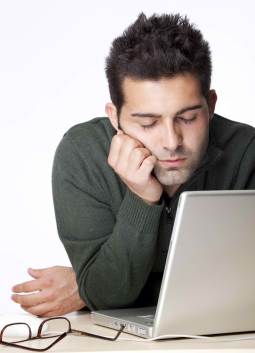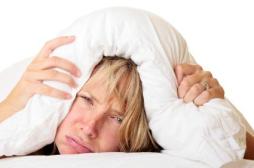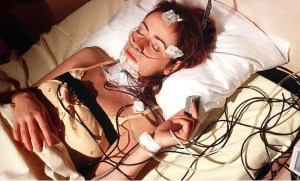 Planning a road trip? Booking a flight? Returning home by bus or train? Feeling exhausted, foggy-headed, in a daze? If you are planning a long distance trip for the summer or for an upcoming holiday vacation, you might want to consider these tips to prevent or reduce jet lag. Can jet lag be treated naturally? Can it occur on bus, train or in the car? Ideas include a special jet lag diet, homeopathic remedies, and lifestyle changes and exercise. Find out more.
Planning a road trip? Booking a flight? Returning home by bus or train? Feeling exhausted, foggy-headed, in a daze? If you are planning a long distance trip for the summer or for an upcoming holiday vacation, you might want to consider these tips to prevent or reduce jet lag. Can jet lag be treated naturally? Can it occur on bus, train or in the car? Ideas include a special jet lag diet, homeopathic remedies, and lifestyle changes and exercise. Find out more.
Continue reading
Tag Archives: insomnia
COFFEE: Getting it Straight–Perks or Plights to Health and Healing?
The Effects of Sleep Deprivation
 Sleep is a part of every individual’s normal routine. We sleep to get away from the stresses of everyday life. We sleep to calm our mind, body and spirit. Sleep is essential to maintain good emotional, physical and mental health.
Sleep is a part of every individual’s normal routine. We sleep to get away from the stresses of everyday life. We sleep to calm our mind, body and spirit. Sleep is essential to maintain good emotional, physical and mental health.
 How Much Sleep Do We Need?
How Much Sleep Do We Need?
A report written by the National Institute of Health on Sleep Disorders and Sleep Deprivation states
“the average basal sleep needs of adults is approximately 7 to 8 hours per night, and the optimal sleep duration for adolescents is 9 hours per night”.
The report indicates that adults, adolescents and children are not getting enough sleep. More than 13 million children are receiving insufficient sleep. The duration and quality of sleep people receive every night may dictate how they perform and act during the day.
What are the Consequences of Sleep Deprivation?
Sleep deprivation may result in many problems. Lack of sleep can lead to but are not limited in the following:
- Greater mortality risk
- High blood pressure
- Heart disease
- Decreased performance and alertness
- Memory and cognitive impairment
- Obesity
- Diabetes
- Hypertension
- Immune function impairment
- Depression
 The cognitive process is greatly affected by lack of sleep. The ability to learn, concentrate, remember, reason and problem solve is impaired. If you don’t get an adequate amount of sleep, you won’t be able to remember what you learned the day before. As you sleep, the mind performs a process called consolidation meaning recent memories are being ingrained in the brain to create long-term memories. Lack of sleep hinders in our ability to make sound judgments about others and ourselves. It especially affects our ability to assess how we are functioning in terms of how we are performing in the workplace or doing at school.
The cognitive process is greatly affected by lack of sleep. The ability to learn, concentrate, remember, reason and problem solve is impaired. If you don’t get an adequate amount of sleep, you won’t be able to remember what you learned the day before. As you sleep, the mind performs a process called consolidation meaning recent memories are being ingrained in the brain to create long-term memories. Lack of sleep hinders in our ability to make sound judgments about others and ourselves. It especially affects our ability to assess how we are functioning in terms of how we are performing in the workplace or doing at school.
 Daytime sleepiness is one of the dangerous consequences of sleep deprivation. It can lead to occupational and automobile injuries. Sleepiness decreases your alertness and slows down reaction time thus resulting in workplace injuries such as tripping over boxes or walking into walls. The National Highway Traffic and Safety Administration write that “each year drowsy driving is responsible for at least 100,000 automobile crashes, 71,000 injuries, and 1,550 fatalities.” Driving while feeling sleepy or drowsy can be just as harmful as driving drunk. Your mind can’t focus on the task at hand due to the constant desire to fall asleep. Drivers under the age of 25 years old are responsible for most of these vehicle accidents.
Daytime sleepiness is one of the dangerous consequences of sleep deprivation. It can lead to occupational and automobile injuries. Sleepiness decreases your alertness and slows down reaction time thus resulting in workplace injuries such as tripping over boxes or walking into walls. The National Highway Traffic and Safety Administration write that “each year drowsy driving is responsible for at least 100,000 automobile crashes, 71,000 injuries, and 1,550 fatalities.” Driving while feeling sleepy or drowsy can be just as harmful as driving drunk. Your mind can’t focus on the task at hand due to the constant desire to fall asleep. Drivers under the age of 25 years old are responsible for most of these vehicle accidents.
What are the Causes of Sleep Deprivation?
Sleep deprivation can be caused by a variety of reasons such as family troubles or longer hours at work. Most often, it is due to undiagnosed sleep disorders. The American Academy of Sleep Medicine recognizes more than 85 million sleep disorders which affect millions of people in the United States. Insomnia and sleep apnea are two of the most prevalent sleep disorders Americans suffer from. Insomnia is when people have a difficult time falling asleep. People can suffer from acute or chronic insomnia. Acute insomnia doesn’t last more than a few nights and usually occurs when the stresses of everyday life are too much for one person to handle. The National Sleep Foundation defines chronic insomnia as “disrupted sleep that occurs at least three nights per week and lasts at least three months.” Chronic insomnia may cause severe daytime sleepiness, making it difficult of pay attention to lectures in school or type on a computer at work. With sleep apnea, sleep is disrupted with short pauses in breathing up to ten seconds. More than 18 million people in the United States are diagnosed with Sleep Apnea.
How to Improve Sleep Habits
The Sleep Foundation provides some strategies of how to improve sleep in the following:
- Establish consistent sleep and wake schedules, even on weekends
- Create a regular, relaxing bedtime routine such as soaking in a hot bath or listening to soothing music-begin an hour or more before the time your expected to fall asleep
- Create a sleep-conducive environment that is dark, quiet, comfortable and cool
- Sleep on a comfortable mattress and pillows
- Use your bedroom only for sleep
- Avoid watching television, using a computer or reading in bed
- Finish eating at least 2-3 hours before your regular bedtime
- Exercise regularly
- Avoid caffeine and alcohol products close to bedtime and give up smoking
Sources:
National Sleep Foundation http://sleepfoundation.org/sleep-disorders-problems
American Academy of Sleep Medicine http://www.aasmnet.org/
National Institute of Health http://www.nhlbi.nih.gov/health/health-topics/topics/sdd/
National Highway and Traffic Administration http://www.nhtsa.gov/Impaired
_______________________________________________
 This article is written by Hang Pham. Hang Pham is a Monterey Bay Holistic Alliance Health and Wellness Educator. Hang Pham was born in Hoc Mon, Vietnam. She came to America in 1994, becoming a U.S. citizen in 2011. Hang graduated from Seaside High School with diploma and received her AA in General Studies from Monterey Peninsula College in 2011. She received her BA in Collaborative Health and Human Services from California State University Monterey Bay (CSUMB) in 2012. In addition to working as a volunteer staff with the Monterey Bay Holistic Alliance, she currently works as a Clerical Aid in the Human Resources Department of Salinas City Hall. The Monterey Bay Holistic Alliance is a registered 501 (c) 3 nonprofit health and wellness education organization. For more information about the Monterey Bay Holistic Alliance contact us or visit our website atwww.montereybayholistic.com.
This article is written by Hang Pham. Hang Pham is a Monterey Bay Holistic Alliance Health and Wellness Educator. Hang Pham was born in Hoc Mon, Vietnam. She came to America in 1994, becoming a U.S. citizen in 2011. Hang graduated from Seaside High School with diploma and received her AA in General Studies from Monterey Peninsula College in 2011. She received her BA in Collaborative Health and Human Services from California State University Monterey Bay (CSUMB) in 2012. In addition to working as a volunteer staff with the Monterey Bay Holistic Alliance, she currently works as a Clerical Aid in the Human Resources Department of Salinas City Hall. The Monterey Bay Holistic Alliance is a registered 501 (c) 3 nonprofit health and wellness education organization. For more information about the Monterey Bay Holistic Alliance contact us or visit our website atwww.montereybayholistic.com.
Disclaimer: The Monterey Bay Holistic Alliance is a charitable, independent registered nonprofit 501(c)3 organization and does not endorse any particular products or practices. We exist as an educational organization dedicated to providing free access to health education resources, products and services. Claims and statements herein are for informational purposes only and have not been evaluated by the Food and Drug Administration. The statements about organizations, practitioners, methods of treatment, and products listed on this website are not meant to diagnose, treat, cure, or prevent any disease. This information is intended for educational purposes only. The MBHA strongly recommends that you seek out your trusted medical doctor or practitioner for diagnosis and treatment of any existing health condition.
Sleep Tight! – Treating Insomnia & Sleeping Disorders Naturally
Do you have trouble sleeping at night? Do you find yourself waking up in the middle of the night or falling asleep during that day? Are you groggy, irritable, depressed?
A good night’s sleep is as important as a proper diet or exercise in helping us to maintain and healthy mind, body and spirit. If you believe you have insomnia, it is a good idea to check with your health practitioner, nutritionist or doctor.
Insomnia Statistics and Medical Conditions that Cause Insomnia
Insomnia is the most common sleep disorder in the United States. Teachers report that sleep deprivation is the primary cause of students falling behind in their classroom studies. The United States leads all other countries in sleep deprivation among pupils.
 Among older populations, insomnia is a frequent medical diagnosis. Between 40% and 60% of people over the age of 60 suffer from insomnia. According to the US Surgeon General, insomnia costs the U.S. Government more than $15 billion per year in health care costs. About one-third of the adult population has experienced it at some time and approximately 10% have chronic insomnia. It can be chronic, transient, or temporary. Insomnia can be the primary health problem or a secondary symptom associated with other medical conditions such as:
Among older populations, insomnia is a frequent medical diagnosis. Between 40% and 60% of people over the age of 60 suffer from insomnia. According to the US Surgeon General, insomnia costs the U.S. Government more than $15 billion per year in health care costs. About one-third of the adult population has experienced it at some time and approximately 10% have chronic insomnia. It can be chronic, transient, or temporary. Insomnia can be the primary health problem or a secondary symptom associated with other medical conditions such as:
- congestive heart failure
- chronic obstructive pulmonary disease
- heartburn
- prostatism
- menopause
- diabetes
- arthritis
- hyperthyroidism
- hypoglycemia
- sleep apnea
- restless leg syndrome
- chronic anxiety or panic attack
- generalized seizure disorder
- chronic migraine
- balance disorder or vertigo
Symptoms or Side Effects of Insomnia
People with chronic insomnia may suffer from a wide variety of mild to severe health disorders or symptoms, including:
- Irritability
- “Nodding off” or “micro-sleeping”
- Lack of alertness
- Memory problems
- Impaired Judgement
- More mistakes at work and school
- Poor relationships
- Nervousness
- Chronic fatigue
- Anxiety
- Hallucinations
- ADHA symptoms
- Diabetes risk
- Tremors
- Body aches
- Increased heart rate
- Moodiness
- Depression
- Excessive yawning
- Eye strain
- Stomach upset
- Muscle fatigue and weakness
- Muscle twitching
- Headache
- Weight gain or weight loss
- Stunted growth
- Weakened immune system
- Clumsiness
- Fainting
- Slurred speech
- Nerve pain
- Numbness and/or tingling
Sleeping Disorder Diagnosis
If you believe you have insomnia and are seeking help from a doctor or trusted healthcare provider, your health practitioner should conduct an extensive interview with you to determine what your symptoms are and to rule out any underlying medical conditions or serious sleeping disorders. It is helpful if you arrive at your doctor’s office with a sleep diary to share any symptoms you have been having and to report your sleeping patterns. It is important to share what foods you eat regularly, your exercise pattern, and any medications, vitamins or herbal supplements that you take. Insomnia can be caused by side effects of prescription medications.
The doctor might schedule you for a psychological evaluations generally involve interviewing but may also involve a series of written diagnostic tests. The doctor or healthcare professional should do a thorough physical exam and might want to schedule you for blood or urine laboratory tests. Other extensive tests might be ordered such as EEG, EMG, or MRI to rule out other chronic conditions. Your doctor might recommend a polysomnogram (PSG) if he or she thinks an underlying sleep disorder is causing your insomnia. If so, you will most likely stay overnight at a sleep center. The PSG records brain activity, eye movements, heart rate, and blood pressure.

Young man using CPAP machine
If it is determined that you have sleep apnea, you will most likely be prescribed a CPAP device. CPAP is a nonintrusive method of providing continuous positive airway pressure, is a treatment that uses mild air pressure to keep the airways open.
CPAP is the most effective nonsurgical treatment, for obstructive sleep apnea, and is the first treatment choice. Many studies have shown that it is effective in helping those with obstructive sleep anpea, caused by bocked or narrowed airways in your nose, mouth, or throat. When sleep apnea occurs, the airway becomes blocked when the throat muscles and tongue relax during sleep. This generally results in snoring and interrupted sleep, sometimes with frequent gasping or awakenings, as the person struggles for air.
If your healthcare practitioner believes that you do not have a physical or biological such as heart failure, or sleep apnea, or other serious medical conditions requiring immediate and radical interventions, the doctor might suggest that you explore alternative lifestyle changes and natural solutions first, before trying prescription drugs.
Treating Insomnia Without Prescriptions
Prescription drugs are often the method of choice when working with a healthcare professional. Approximately 10 million people in the U.S. use prescription sleep aids. This might be the right solution for you, and is a decision between you and your trusted healthcare practitioner. However, there are many lifestyle changes that you can discuss with your doctor and might be effective, before trying medications. As always, consult with your trusted healthcare practitioner before trying any of these supplements or suggestions.
- Sip something warm before going to bed: chamomile, anise or fennel seed teas, or warm milk.
- Sleep on your back to take stress off your heart, stomach or lungs.
- Sleep on a firm mattress to support your spine and allow it to relax.
- Eat a light meal at least two hours before sleeping so that your digestive system can relax and not be overly working while you are trying to rest.
- Take a warm bath to relax your muscles and lower your blood pressure, just before going to sleep.
- Avoid stimulating drugs, such as caffeine, energy drinks, and nicotine, particularly before going to bed.
- Exercise several hours before going to sleep.
- Use a sleep mask to block out interfering light.
- Try writing in a journal or praying before sleeping and imagine releasing your problems or stress over to a higher power
- Read a relaxing book before sleeping.
- Try the regular practice of meditation to lower stress hormone levels.
- Try taking natural sleep herbal remedies or supplements such as: melatonin, tryptophan, magnesium, chromium, chamomile, kava, arsenicum album, coffea cruda, valerian root and others.
- Avoid alcohol- it is a leading cause of poor sleep.
- Minimize noise when trying to sleep.
- Listen to relaxing music.
- Try hypnotherapy sessions or recorded hypnotic sleep suggestions before retiring.
- Maintain a comfortable bedroom temperature.
Insomnia is a serious health problem that can lead to other physical, mental or emotional problems if not treated. However, if there is no serious underlying medical cause requiring radical intervention, there are many resources and simple, natural lifestyle changes available. As always, check with your family doctor or practitioner before making a change in your normal routine or trying new health supplements.
Resources
National Sleep Foundation
Better Sleep Council
National Highway Traffic Safety Administration
US Surgeon General’s Office
References
National Heart, Lung, and Blood Institute (2012). “What is Sleep Apnea?”. National Institutes of Health..
“Sleep Apnea: Who Is At Risk for Sleep Apnea?”. NHLBI: Health Information for the Public. U.S. Department of Health and Human Services.
Ng, Beng-Yeong; Lee, Tih-Shih (2008). “Hypnotherapy for Sleep Disorders”. Annals of the Academy of Medicine, Singapore 37 (8): 683–8.
Hurwitz, Thomas D.; Mahowald, Mark W.; Schenck, Carlos H.; Schluter, Janet; Bundlie, Scott R. (April 1991). “A retrospective outcome study and review of hypnosis as treatment of adults with sleepwalking and sleep terror”. Journal of Nervous & Mental Disease 179 (4): 181–241.
Melinda Smith, M.A., Lawrence Robinson, Robert Segal, M.A. (September 2011). Sleep Disorders and Sleeping Problems
_______________________________
 This article is written by Jean Voice Dart, M.S. Special Education from Illinois State University. Jean is a published author and has written hundreds of health articles as well as hosting a local television program, “Making Miracles Happen.” She is a Registered Music Therapist, Sound Therapist, and Master Level Energetic Teacher, and is the Executive Director, founder and Health and Wellness Educator of the Monterey Bay Holistic Alliance. The Monterey Bay Holistic Alliance is a registered 501 (c) 3 nonprofit health and wellness education organization. For more information about the Monterey Bay Holistic Alliance contact us or visit our website at www.montereybayholistic.com.
This article is written by Jean Voice Dart, M.S. Special Education from Illinois State University. Jean is a published author and has written hundreds of health articles as well as hosting a local television program, “Making Miracles Happen.” She is a Registered Music Therapist, Sound Therapist, and Master Level Energetic Teacher, and is the Executive Director, founder and Health and Wellness Educator of the Monterey Bay Holistic Alliance. The Monterey Bay Holistic Alliance is a registered 501 (c) 3 nonprofit health and wellness education organization. For more information about the Monterey Bay Holistic Alliance contact us or visit our website at www.montereybayholistic.com.
Disclaimer: The Monterey Bay Holistic Alliance is a charitable, independent registered nonprofit 501(c)3 organization and does not endorse any particular products or practices. We exist as an educational organization dedicated to providing free access to health education resources, products and services. Claims and statements herein are for informational purposes only and have not been evaluated by the Food and Drug Administration. The statements about organizations, practitioners, methods of treatment, and products listed on this website are not meant to diagnose, treat, cure, or prevent any disease. This information is intended for educational purposes only. The MBHA strongly recommends that you seek out your trusted medical doctor or practitioner for diagnosis and treatment of any existing health condition.








